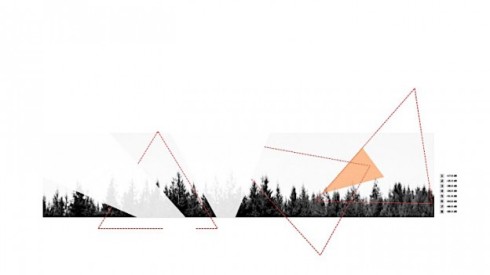 On 6th November, in London, Duncan Honeybourne – a longstanding specialist in British and Irish piano music – premieres Richard Pantcheff’s ‘Piano Sonata’ at the 1901 Club as part of the English Music Festival. Richard himself will be on hand to introduce the piece.
On 6th November, in London, Duncan Honeybourne – a longstanding specialist in British and Irish piano music – premieres Richard Pantcheff’s ‘Piano Sonata’ at the 1901 Club as part of the English Music Festival. Richard himself will be on hand to introduce the piece.
Duncan is also performing a couple of other British piano works – Frank Bridge’s ‘Piano Sonata’ (from the latter’s later post-tonal, post-impressionist compositional stage), and ‘Notturno’, by Bridge’s onetime pupil and champion Benjamin Britten (a competition piece which, rather than foregrounding performer virtuosity, challenges them to create and sustain an atmosphere involving ever-quieter dynamics). Richard Pantcheff was, in turn, Britten’s pupil – so there’s a chain of learning and of respect being explored here.
Versions of the Britten and Bridge pieces are below…
* * * * * * * *
Mid-month, the Scottish Ensemble embark on their four-date Elemental tour through Scotland, accompanied by Aidan O’Rourke (fiddler for striking post-folk trio Lau) and cross-disciplinary keyboard whiz Kit Downes plus guest violinist/director Simon Blendis (of London Mozart Players, Orchestra Ensemble Kanazawa and Schubert Ensemble).
The program centres around a new O’Rourke/Downes co-composition ‘There is no beginning’ (written for harmonium, piano, fiddle and string orchestra) which “fuses the visceral energy and haunting beauty of Aidan’s traditional Celtic roots with wisps of jazz, folk, ambient and classical. Surrounding it will come a clutch of contemporary works that speak to us of all things elemental – space, silence, waves and air – intertwined with melodies which echo an ancient Scotland.
“The performance is inspired by Edwin Morgan’s 1984 poem ‘Slate’, generally accepted as a love letter to a politically- and environmentally-battered Scotland. Through music, alongside its two collaborators, Scottish Ensemble will explore themes of time, change and transformation, particularly in relation to our nation and our world; entities that, as with music, are subject to the constant processes of time. Sound will be used to conjure thoughts of the past, present and future of the land we all share – as well as creating a space to contemplate it.”
Several further string orchestra pieces flesh out the programme. Tansy Davies’ ‘The Beginning of the World’ was originally a 2013 BBC Proms piece and is “a variation on Sellinger’s Round, an Elizabethan theme”; David Fennessy’s 2016 work ‘Hirta Rounds’ is an unconducted piece for sixteen string player in small groups with “many different fluctuations in tempo occurring simultaneously”. From earlier on in the repertoire, there’s György Ligeti’s ‘Ramifications’ from 1968 (a “mistuned” experiment for twelve players in two groups, one of which is collectively tuned a quarter tone higher than standard pitch, and within which there are no stresses, meter or specific rhythm) and Ruth Crawford Seeger’s ‘Andante for Strings’ from 1931 (“a study in dissonant dynamics, with the overlapping of crescendos and diminuendos alone creating a sense of melody out of single pitches in each instrument.”)
Versions of the last two are below…
* * * * * * * *
 Having already made an impression this season at Daylight Music back in October, percussionist Joby Burgess is heading to Peckham’s CLF Art Café for the first in a new round of composer Alex Groves’ itinerant SOLO concerts.
Having already made an impression this season at Daylight Music back in October, percussionist Joby Burgess is heading to Peckham’s CLF Art Café for the first in a new round of composer Alex Groves’ itinerant SOLO concerts.
As is the case with performers at all of these concerts, Joby will be playing a brand-new Groves piece (in this case ‘Curved Form (No. 18)’, one of an ongoing series) plus various other unspecified contemporary percussion pieces. There’s not much information on the latter, although there’ll definitely be some Morton Feldman and some Linda Buckley: possibly the latter’s ‘Dischordia’, played on the aluminium harp (as showcased above and below).
Meanwhile, there’s a Joby Q&A here, at the SOLO site, for a window into what makes him tick (and rustle, and rattle, etc.); and here are a few more Joby performances recycled from the Daylight post…
* * * * * * * *
Dates:
The English Music Festival presents:
Duncan Honeybourne performs Richard Pantcheff’s ‘Piano Sonata’ (première)
1901 Arts Club, 7 Exton Street, Waterloo, London, SE1 8UE
Wednesday 6th November 2019, 6.30pm – information here, here and here
Scottish Ensemble’s ‘Elemental’ tour:
- Aberdeen Music Hall, Union Street, Aberdeen, AB10 1QS, Scotland – Saturday 9th November 2019, 7:30 pm – information here, here and here
- Caird Hall, City Square, Dundee, DD1 3BB, Scotland – Sunday 10th November 2019, 7:30 pm – information here, here and here
- Galvanisers @ SWG3, 100 Eastvale Place, Glasgow, G3 8QG, Scotland – Tuesday 12th November 2019, 7:30 pm – information here, here and here
- Assembly Roxy, 2 Roxburgh Place, Edinburgh, EH8 9SU, Scotland – Wednesday 13th November 2019, 7:30 pm – information here, here and here
SOLO presents:
SOLO 07: Jody Burgess
The CLF Art Café, Block A, Bussey Building, 133 Copeland Road, Peckham, London, SE15 3SN, England
Wednesday 13th November 2019, 8.00pm – information here, here, here and here

















